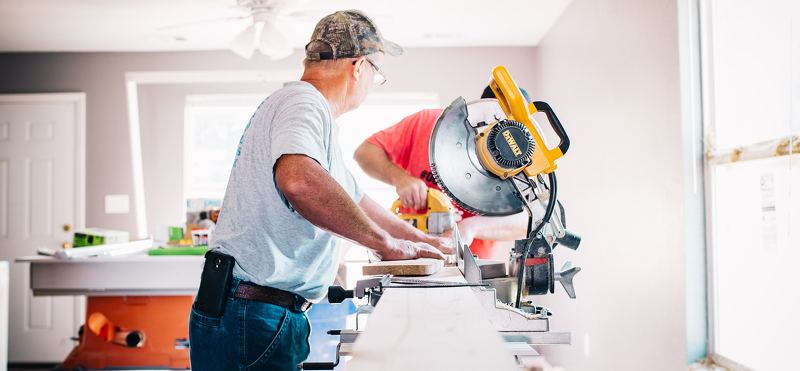Estate agents have long been the ‘go to’ people when selling a property, but there are now many alternatives. Use this guide to find out what choices you have.
- Introduction
- Establish Your Priorities
- Marketing Your Own Property
- Taking back control
- Consider multi-agent
- Online agents
- Sell your own property
- Online platforms and presentation tips
- Social media
- Other forms of marketing e.g. boards, local paper
- Taking back control
- Improving Your Property
- Décor tips
- Outdoors
- Indoors
- Problem areas/repairs
- Décor tips
- Letting
- Pros and cons
- Landlord & Tenant
- Students
- Air bnb
- Auction
- Pros and cons
- How to prepare
- Making Your Property Easy to Buy
- Consider providing a survey
- Knocking the price down
- Be confident
- Use good solicitors
- Consider planning permission options
- Offer SDLT/fees/guarantees
- Attracting Investors/Cash Buyers
- Saves time and money on degree of presentation expected by standard buyers
- Other advantages of selling to cash buyer experienced buyer
- The Property Buying Sector
- Quick sale/property buying company pros and common misconceptions/fears
- Property Ombudsman/CoP role in protecting seller
- Transparency
- Price protection and clear costs
- Legal
- The National Association of Property Buyers
- Conclusion

Introduction
Whatever your age, background or situation, selling a house is a major life event. The pressure of getting a property on the market, dealing with all the paperwork, and worrying about money can take a real emotional and financial toll. The role of the professionals involved in your sale should be to take some of that strain by simplifying the process… and of course, finding you a serious buyer. Most people assume that using an estate agent is the only way to navigate the stormy seas of the property market. But whilst many house sales are still dealt with in this way, there are many other routes to selling a home which you might not have considered.
This guide will set out some of the ways in which home-owners are finding alternatives to the traditional estate agent route. Many of these allow you greater influence in the property selling process, and can help you secure a quicker sale. Some of them require some time and effort on your part, or will be more successful if you have a little ready cash to invest. Other options discussed here are suitable for everyone, whatever your budget or timeline. But whether you need to find a buyer fast, or just feel using an estate agent isn’t for you, the ideas here will help you decide the best marketing method for you and your home.

Establish your Priorities
New online possibilities, a changing economy, and increasing consumer awareness have created new opportunities in the property market. This creates more choice for everyone, but knowing how to target the right buyer for your home is crucial to making a sale. Even estate agents can struggle with this. Many people have experienced the frustration of having a house seemingly stuck on the market, unsure whether their agent is giving them the right advice or putting in enough effort for their commission. If this is a situation you want to avoid, accessing different routes to buyers and taking back control of the selling process might be for you. Having a property stuck on the market can be extremely costly, especially if it’s not your main residence. Council tax and other outgoings quickly become onerous, but there are ways you can actually make this situation pay for you whilst you find the right buyer. This guide will introduce plenty of ideas, small and large, which can help you make the most of selling your own home.
“Around 30% of estate agency sales fall through before exchange of contracts.” – Jonathan Rolande.
Sometimes it’s necessary to make a quick sale, and it’s a situation estate agents aren’t always best placed to deal with. For example, it’s increasingly common to inherit a property which needs to be sold quickly to cover costs or settle an estate. Perhaps you need to sell your home to meet urgent financial needs or avoid repossession, which would be hugely stressful and costly in itself. If you’ve just had a sale fall through, you might want to find a new buyer quickly to secure a planned purchase or keep a chain together. Maybe you are looking to move to a different area or even emigrate for work or personal reasons, in which case a timely sale will be crucial to your family plans. Or perhaps your home has simply been on the market for too long, and you’re looking for ideas to shake things and secure yourself that sale. There are many situations in which it is necessary to find a reliable buyer fast, and there are plenty of things you as a seller can do to help the process along. This guide will set out different routes to finding serious buyers, and securing a successful sale as fast as possible.
Establishing the reasons and benefits to looking beyond the traditional estate agent route will help you make the most of this guide. Consider the resources you have available, your reasons for selling, and how quickly you need to make a sale. These factors will help you make the most of the tips you’ll find here. But don’t worry if you’re not sure where to start – this guide will take you through the pros and cons of every option, and suggest further sources of advice and information too. Reading about the alternatives available to using an estate agent will provide you with the ideas and insights which will help you make the right decision for you.

Marketing Your Own Property
One way to take control of how quickly your home gets sold is by doing some or all of the legwork yourself. However, the idea of selling a property without an estate agent can be very nerve-wracking. This is because people tend to use estate agents for one of two reasons. Firstly, selling a house can cause anxiety, and we hope that by taking on an estate agent, our fears will be soothed. We expect that a professional, who has the rights contacts and experience of the market, will help us achieve our goals and make the process run smoothly. But this often ends up not being the case, especially if your agent is not communicative or you don’t feel ‘in the loop’ about how your sale is going.
By getting more involved in the sale of your property you will actually know more about what’s going on, and be able to take respond immediately to prospective buyers or changes in the market. The second reason most people use an estate agent is simply habit – it’s probably the way almost everyone you know has sold their home. But times are changing, and so should we. Is it a good idea to use an agent to manage this momentous event, just because that’s the way it’s always been done? Breaking out of old patterns of thinking can be a great way to get ahead, and the fact you’re reading this suggests you’ve got the right mind-set for managing your own property sale.
If your property is already on the market with an agent, one simple step towards taking back control is considering a change of agent. Take a look at the agreement you entered into to find out how long you are tied in, and whether you are allowed to engage more than one agent simultaneously. If you have either of those as an option, tell your current agent first. They may decide to step up their game in order to keep you, by marketing your property more actively, or negotiating commission.
A multi-agent approach is also possible if your agreement permits it, or you can negotiate it in. Many sale agreements will require that you stick with a sole agent exclusively for an initial period of weeks or months, but allow you to engage other agents further along. A multi-agent approach requires a little more effort on the part of the seller in engaging and keeping track of what’s going on, but will mean your property turns up in more searches. You can also compare how different estate agents run their business, and figure out if one is putting in more effort to achieve the viewings. You may even see that your estate agents start to compete with each other by working a little harder, or offering deals on commission rates.
“Price is often the key to selling a property but great marketing is also essential to get the best price” – Jonathan Rolande
If you’re prepared to do more of the actual marketing yourself, there are even more options available to you. These days, there are several reputable online estate agents with whom you can list your property. Some people are put off by the fact they might not ever meet their agent face to face, but there are many advantages to this approach. The biggest one is that commission rates are generally much lower, and many platforms simply charge one up-front fee and no commission at all. This means you will get a much better return on your sale, and can budget accurately. You will keep some of the reassurances which come with using an estate agent, such as access to conveyancers and some regulatory protections. Your property should also automatically appear in all the main property search engines.
However, there are some downsides to using an online estate agent, and you will certainly end up doing a more of the work yourself. You will probably have to provide property photos for the listing, keep it updated, buy or create a floor plan, and write your own property description. To keep costs down, you might also want to run your own property viewings for prospective buyers. This can actually be more difficult than it seems, as buyers often find it an awkward situation to be in. They tend to cut viewings shorter, and are wary of asking the questions which they would usually ask of an objective estate agent. This leads to the main disadvantage of using an online agent – trust.
Many potential buyers are wary of homes listed online, because they fear not receiving the prompt and professional service they expect from a traditional estate agent. Conveyancers and solicitors are often cautious when advising buyers on an online purchase too, as online agents have a reputation for being slow and hard to communicate with once the legal work begins. All of this might ultimately reduce your chances of securing a firm offer.
If you’d like to fully take back control of your sale, you might consider not using an agent at all. This would allow you to develop your own marketing strategy, and to know exactly what’s going on at every stage of the sale. Now that the internet is such an important part of how buyers look for property, there is no reason why you can’t list and promote your own home at very little cost. This means you can save a huge amount of money by not having to pay any agent commission or fees when you come to sell. An effective marketing strategy will come with some costs, however, so you should consider what kind of buyer you are targeting and choose your methods accordingly and remember – as a private individual you won’t be able to feature your home on property websites such as Rightmove or Zoopla.
If you’re looking for a residential buyer, you’ll want your home to appear in all the same places as those being sold by estate agents. Some of the big property listing platforms may charge a small fee, but this will be worth paying. You should also order yourself a ‘for sale’ board, as many local buyers still notice desirable homes whilst driving or walking around their local area. It’s also crucial to use social media, as that is where potential buyers spend so much of their downtime. Even if they aren’t actively looking, catching sight of a well-priced home whilst browsing Facebook or scrolling through twitter can create real sales leads. It might even be worth spending a little cash to have your listing promoted to specific audiences. Most social media platforms offer this, and will provide analytics to show how effective your marketing is, allowing you to make adjustments.
The big downside to selling your property in this way is that you will not be covered by the same regulations as estate agents. Whilst with proper research and a good strategy there is no reason to fear selling your own home, potential buyers may be put off by a private sale. Estate agents are covered by trading standards and codes of practice which standardise the way they do business. Whilst this can be limiting for you, it does reassure many residential buyers. If you plan to sell your property yourself, you might want to target your marketing towards cash buyers and investors, who tend to be more confident about the process and are likely to see a private seller as a good opportunity.
You should still list your property online, but also try to discover where professional property buyers in your area are looking. You would do well to take a small ad in the local paper, and even create posters to display in newsagents and other public places. If there are professional trade magazines which investors in your area are reading, consider taking an ad out in one of those too. Selling your own home in this way requires a lot more work and continuous attention to how your marketing methods are playing out, but the financial rewards can be high. A cash buyer will help your sale progress quickly, and you will still engage a solicitor to deal with contracts and completion. They may even reduce their legal fees as they won’t need to deal with an agent or any mortgage paperwork.

Improving Your Property
If you need to sell your home fast, you want buyers to be able to be certain your property is something they can imagine living in. Even if you’re trying to attract cash buyers or landlords, an attractive and sound home is going to offer reassurance that the property won’t need more investment before it can make them a return. And if your home has been stuck on the market for a while, making some improvements is a sure-fire way to get things moving again.
The prospect of putting time and money into a house you’re looking to sell can be off-putting. But this of it as a good investment, because some quick and easy updates can really make all the difference. You’ll get far more viewings with a fresh looking property, and a better price too. This section contains suggestions for making simple improvements which shouldn’t cost the earth, and will probably more than pay for themselves.
- The front door is the first thing prospective buyers see, so make sure it looks decent and suits the property. A dingy looking door suggests a less than perfect interior, and may even leave buyers worrying about the security of the home. Clean any windows in the door, and polish up any metal fittings. UPVC doors really show dirt and grime, but can quickly be brightened up with washing up liquid and a bit of elbow grease. If you have an older home with a traditional wooden door, a fresh lick of paint in a fashionable colour will work wonders.
- The frontage of your home is what gives it kerb appeal, so take a step back and think about what buyers will see, and how it will look in photographs. Make sure any garden area is trimmed and tidy, clean the windows, and repair any damaged brickwork or pebbledash. Clear weeds from the footpath and paint the fence. All of this will cost you very little, but make a huge impact on buyers.
- Make sure paperwork and letters don’t collect on the doormat if you aren’t living in the property, as this really gives it a neglected and unwelcoming feel at viewings. If you can’t visit the property regularly to pick it up, consider fixing a cage to the back of the letterbox so the floor stays tidy.
- Everyone knows it’s often the kitchen that sells a house, especially for residential buyers, so direct your attentions here next. Make sure all appliances are sparkling clean, even if they won’t be sold with the property. Check for any grimy areas, such as degraded sealant or scaled up taps, and clean or replace as necessary. Sometimes well-used kitchens acquire cooking smells and stains, in which case it will be worth freshening up with a lick of neutral coloured paint. Tiles can also be very dating, so consider investing a little more in having these replaced if they are very busy or out of fashion. Tile paint is a cheaper option if you aren’t confident about doing the job yourself.
- Ensure the property is completely free from clutter, as this is one of the biggest turn-offs for buyers. You might be used to seeing your own stuff around, but it tends to age a home and makes it harder for viewers to imagine their own belongings in the space. If you have a lot of possessions, pack up as much as possible and ask a friend or relative to store it for you. If that isn’t possible, it will be worth paying for a storage unit until the house is sold. If you’ve inherited a property and aren’t sure what to do with any furniture or belongings left inside, have a clearance company come and sort it out. You may even make a little cash if you’re lucky. But whatever it takes, get the house as tidy as possible and keep it that way for viewings.
- Flooring is another area worth paying attention to, because your buyers certainly will as they walk around your home. Carpet can be a particular problem, as it tends to harbour smells and stains. If you have lightly soiled carpets, shell out on a professional carpet cleaning company to come and freshen them all up. Properties which have been rented out or lived in for a long time often have carpets which really let down the rest of the house. In this case, you might be better off ripping them out and replacing with laminate flooring, which many people now prefer anyway. If this is beyond your budget, there are now many vinyl’s designed to replicate wooden flooring which are much easier to fit yourself.
- Curtains can also let down an otherwise attractive home, especially if they are dated or dirty. Luckily, most modern curtains can be thrown in the washing machine. Add some essential oils or a scented fabric conditioner, and their freshly laundered scent will lift the space when rehung. If you have net curtains, these are worth taking down entirely to let extra light into the house.
- Period features are a real selling point if you’re selling an older home. Make sure to draw attention to them by moving any clutter or furniture out of the way, and highlighting them in your listing images. Original fireplaces are particularly popular, so give them a good clean, repaint them if they’re looking past their best, and replace any broken tiles or fittings.
- Outdoor spaces are very important to family buyers, but are often neglected in homes which have been unoccupied, rented out, or lived in by an older person. There’s no need to do major work beautifying a garden, as plants can be very expensive and only attractive in season. Just make sure to mow the lawn regularly, clear any obvious weeds, and keep borders looking trim. If outdoor spaces have been very overgrown, it’s probably best to pay an odd job person to clear it for you. They should have the right equipment to get an otherwise laborious task done quickly, and clear all the waste for you too.
- It’s important to address any serious problem areas in the home which are likely to draw attention. Structural issues and obvious damp are particularly likely to put off buyers of all types. Even if they aren’t apparent on inspection, leaving a buyer to discover them during contract enquiries or from a survey is likely to lead to wasted time and legal fees. Problems like these can be costly to repair, but will also knock value off your property in the eyes of buyers. Have a professional do the job properly if you aren’t equipped yourself, and keep the invoice and any guarantees to show enquirers.
- If the property you’re selling isn’t currently occupied, think about staging it to increase its appeal for residential buyers. Although viewers don’t want to see a lot of personal items, empty rooms look very stark and unwelcoming. Placing simple furniture and décor items around the house will increase its homeliness in photographs and in real life, especially in main living areas. If you don’t have any spare furniture to use, ask friends and family if they have any extra items to lend. A dining table and chairs should help buyers imagine where they will share family meals, and a few simple ornaments and pictures on the walls will make it feel like a home.
Once you’ve done everything within your means to make your home look fresh and inviting, make sure to update any photos you’ve already provided to agents or used for your own marketing purposes. Good images are very important, because first impressions count when it comes to selling a house. Choose a bright, sunny day if you can, or consider bringing in extra light sources if the weather won’t oblige. Many smartphones now have excellent cameras, but if you don’t have one, use a DSLR or borrow one from a friend.
If you can get hold of a wide-angled lens, that will help you get more in each shot. Take plenty of pictures so that you can go through them later and choose the best selection possible before uploading to the internet. Unless you have a special feature which really deserves to be show off, make sure that the first picture in your series is of the front of the house. This is what tends to attract buyers to click through, and displaying an internal picture first leads many browsers to suspect the outside of a house is unattractive and not worth looking at.

How to Make an Income If You’re Home Isn’t Selling
It’s not uncommon for a property to get stuck on the market. Perhaps initial interest has trailed off, or it’s just the wrong time of year to expect people to be buying. If you’re not in a financial position to make necessary repairs and improvements to your home, you can also end up stuck. This is a really tricky situation to be in, because it’s not just going to hold up your own financial plans… having an extra home to be responsible for also costs money. Even if no one is living in the house, you will still be liable for insurance, council tax, ground rents, and any other outgoings. You may also have to declare the fact you own a second property when doing your tax returns and in other situations where it could be a financial disadvantage.
“Renting a property is a big commitment – make sure you are fully aware of all legislation – there are over 150 rules and regulations!” – Jonathan Rolande.
However, owning an empty property can also be an asset if it can make you some money whilst you’re waiting for it to sell. And these days, there’s more than one way to rent out a house, so you might want to consider whether one of these routes would suit your plans:
- Renting out your home through a letting agent means you can be making a good income without having to take on too many landlord responsibilities yourself. You can pay them to look after any management issues and rent collection, as well as finding you a tenant. The house will be looked after rather than empty, and council tax and other bills we get covered too. Many tenants, however, will be looking for a fairly permanent home, so consider how long you are willing to take your home off the market for. If it’s simply the wrong time of year to be selling, you could offer a fixed term tenancy of 6 months. Some people rent for short periods for work or while moving house, so this could be a really good option.
- If you want to maximise your potential rental income, you could let the property out yourself to avoid agent commission and fees. There is high demand for rental homes in most parts of the UK, so you will probably find tenants through advertising in local papers and newsagent windows. However, being a landlord is a serious undertaking. You will be liable for keeping the property in good repair and dealing with any enquiries. There is quite a bit of legislation which regulates landlord responsibilities and rights, which you should take the time to be familiar with. You will also have to make sure you use the right paperwork for tenancy agreements, eviction notices, and any other legal matters. Some tenants can be very difficult, and may leave the house in a worse state than you left it.
- If you live in an area with a university or college, you could consider taking on student tenants. The advantage of this is, that students want fixed term tenancies to cover their period of tenancy, so your rental income will be guaranteed for the whole period – even if they decide to drop out and move away. A house with several bedrooms can be a particularly lucrative income generator with student tenants. However, you will have to be willing to take your property off the market for almost a year. If you need the time to attend to other business, or to save up some cash to make major improvements to a house, this could be a good option.
- Another increasingly popular way of making an income through a spare property is by listing it on Airbnb. Many people think this is only a realistic option for homes in cities and tourist areas, but Airbnb is quickly becoming the main people many people plan their travels for work, holidays, and trips to see family. You won’t be able to guarantee the same level of income you might expect by renting to tenants, but you also won’t need to put as much as time and money into meeting the obligations of a landlord. And most importantly, you won’t end up tied into a tenancy and potentially having to evict people when you’re ready to sell.
If you are considering renting out your home whilst you wait to sell, there are a few important things to be particularly aware of. Firstly, you must check any insurance policies which affect your home and its contents. If these aren’t set up to cover rental situations, you could end up out of pocket.
And this isn’t just in case your property gets damaged by tenants – you will also need appropriate insurance to protect from any claims made by those using your home. If you have a mortgage out against your property, you should also check that letting is permitted under its terms. A professional inventory is now considered best so you’ll need to budget for this – a list of fairly typical costs can be found here http://www.exactsussex.co.uk/inventory-prices yourself with safety legislation too – things like gas safety checks and smoke detection are essential.

Selling at Auction
Property auctions can seem intimidating to anyone who is not familiar with how they work. If you’ve watched a programme like ‘Homes under the Hammer’, you’ll have seen how fast-paced they can be. Sometimes cash buyers will bid against each other frantically for a home which has great development or rental potential, but other times a house might not sell at all. But there’s more to property auctions than what happens on the day – the process of selling a house in this way is quite different to using an agent, and has its own pros and cons.
Advantages to selling at Auction:
- Auctions can be a very quick way to sell your home, as you will hopefully find a buyer on the day of the auction itself, rather than having to deal with viewings and wait for offers to trickle in, in the hope they will eventually turn into a sale.
- If someone successfully bids on your home at auction, they commit to exchanging on your property that day. They are also then bound to complete the purchase within a fixed period. This is quite different to when a normal buyer makes an offer, and many weeks of negotiation and paperwork follow, during which a sale often falls through. If an auction buyer fails to complete the purchase within the fixed period, you get to keep the property AND the 10% deposit generally paid on the auction day. An auction is therefore not just a quick way to sell your home, but also much less risky in terms of completion.
- If you have a home in a desirable area or with great development potential, it could generate a lot of interest and achieve a higher price than it might have done on the open market.
- A property which has seen better days will need considerable investment to attract viewers in an estate agent’s window, but won’t necessarily put off auction buyers looking for development properties. If you can’t afford to do up a house and need it sold fast, an auction might be your best.
Disadvantages of selling at Auction:
- There is no guarantee that a property sold at auction will achieve the price it might have on the open market – and indeed, no guarantee it will sell at all. Although you can agree a guide price and reserve with the auctioneer, you won’t get any say in how the bidding goes, and can’t back out once the hammer falls.
- You will need to get your ducks in a row before the auction because exchange happens on the day. This means you’ll need to instruct a solicitor to prepare auction paperwork, obtain an EPC, and anything else the auction house requires. These costs will be for nothing if the property doesn’t sell.
- Houses often go for less at auction than they would have done with more time put into their presentation and marketing through traditional means. Whilst it can be a good way to sell fast, you are probably going to lose some of your home’s potential value this way.
Auctions do attract a lot of cash buyers, and some people opt for this route when having to make a quick decision about a property they need to sell. Properties due to be repossessed are often seen at auctions for this reason. If you’re thinking about auctioning your home, be sure to do your research on local auction houses and consider the potential costs involved before committing.

Making Your Property Easy to Buy
There are steps you can take yourself to make a property more attractive to buyers. These are often easier to take if you aren’t using an estate agent, who may put pressure on you to pay for services they get commission on, and prefer to do things in the traditional way. But if you can negotiate with your agent, or are marketing your home yourself, there are several offers you can make which could help draw in buyers looking for a great deal:
- Consider paying for a survey on your home and offering it to all prospective buyers. Whilst this seems like an unnecessary expense, it can be particularly attractive to buyers who don’t need to take out a mortgage and therefore aren’t obliged to have a survey carried out – these types of buyers will often go for safer looking properties unless there’s a survey available to reassure them.
- Offer to pay Stamp Duty Land Tax (SDLT) and/or your buyer’s legal fees. This is another draw for property buyers, but be aware that investors will often be liable for higher rates of SDLT than your average residential buyer. You might want to set a cap on the legal fees you’re prepared to cover too, or ask them to use the same firm as you to help things move along quickly and keep an eye on costs.
- Don’t be unrealistic when pricing your home. If it’s been stuck on the market for a while and you’re not sure what the problem is, the answer is probably that you’ve set your asking price too high. Whilst it can be painful to readjust your expectations, sometimes knocking a bit off the price is key to securing those vital viewings. This is especially true if your asking price is just higher than a stamp duty rate threshold.
- If you’re looking to attract property developers, who are likely to want a quick sale, consider how you can make your home appeal to them. Check out what sort of planning permissions might be available for extending or approving your home, and then promote these possibilities within your sale listing. If there is the potential to develop your home in a way which would add significant value, it might be worth actually applying for and securing the permission before putting the house on the market. A good example of this is homes on a large plot, where it may be possible to divide the garden and build an extra house. Large extensions which would increase the number of bedrooms will also interest investors.

Attracting Investors, Cash Buyers and Developers
One of the disadvantages of using a high street estate agent, is that their sales model is designed to attract standard residential buyers. Residential property sales generally take between three and six months, and that’s only once an offer has been accepted. There’s also all the time which goes into arranging initial viewings, asking questions, arranging a final viewing, speaking with mortgage brokers and securing the mortgage itself. Anyone who has sold their own home knows how long the process can take.
There are also a huge array of problems which can arise for residential buyers which can cause the sale to fall through. Some buyers are changeable, backing out of a purchase at the last minute, at great financial cost to you… not to mention the time wasted. Residential buyers are also more likely to fall through due to factors outside their control, such as family illness, a mortgage deal not working out, or the chain they are part of breaking down.
If you are serious about selling your property fast, you need to shift your focus from the residential market, to serious buyers with ready cash. There are multiple advantages to doing this:
- A cash buyer does not need to wait for their own home to sell, or arrange a mortgage. Investors will sometimes use a mortgage to develop their portfolio, but they will be experienced in finance and far less liable to the sort of delays residential mortgages can involve. This hugely reduces the time it takes to get to exchange and completion. Sometimes a cash buyer will even want to exchange and complete on the same day.
- A developer will not be concerned about the condition of your property. In fact, they are probably actively seeking properties which need work, so that they can make their own mark on the home. Whereas residential buyers will expect a house to be presented in tip-top condition, requiring you to be put in time and money to have a good chance of selling, developers are often willing to buy a property in any condition.
- Investors and developers are experienced buyers. This means that they know exactly what they are looking for, and how to get it. Where residential buyers will want to spend a lot of time asking a huge range of questions, both during viewings and pre-exchange enquiries, a professional buyer will trust their own judgement and know their priorities. They just want to get the deal done, saving you time and money.
- Cash buyers may well not bother ordering a property survey, as this is a requirement of mortgage lenders. This can saves weeks, as surveyors are often in high demand and have long waiting lists.
Knowing how to market your home to cash buyers and investors can be tough if your only experience of the property market is that of buying and selling your own home. Bypassing the delays often encountered on the residential market sounds great, and we’ve already run through some of the ways you can do this in the preceding sections. But these all take time, and probably some investment too. Preparing a property for auction requires a solicitor’s input, and that doesn’t come cheap, nor with a guarantee that your home will even sell.
Attracting developers might require that you spend time and money on architects and at your local planning office. Another option people often turn to when they need a quick sale is property buying companies, which are often in a position to buy a property immediately. Some sellers feel cautious about reaching out to a property buying company, due to an understandable lack of confidence in dealing with commercial buyers. But these organisations are designed to make the process easy for every day sellers who just need to get their sale moving. The next section therefore looks at how you can make the most of this increasingly popular way to sell your home.

The Property Buying Sector
The property buying sector includes professional bodies and companies which buy property as a form of investment. They may be single entities, or made up of a group of investors. Unlike small scale local developers and investors, these buyers are often working on a large scale.
Sometimes they do this simply to build up an investment portfolio, whilst other specialise in buying properties for redevelopment. Some companies target particular types of property, whilst others promise to make an offer on any home at all. But overall, buyers in this sector are often much less fussy about the sort of property they are looking to buy, as they are working with economies of scale.
This is good news for anyone with a dated or tired home, property which is located in an undesirable area, or just any house which seems to struggling on the open market. Many property buying organisations will make an offer on any home at all, reducing the time and effort which goes into finding a buyer. Not only that, but many companies will be in a position to guarantee exchange and completion within a short, fixed time-frame.
This means that not only can you be sure that the sale won’t fall through at the last minute, but you can make future life plans with more certainty. If you’re selling your own home, you’ll be able to arrange your next move and not lose money on deposits or broken chains. If you’re selling a property to meet financial needs, invest in your business, or move area, then the stress of wondering if and when you’ll be able to move on will be totally taken care of.
There are also cost savings to be made by turning to the property buying sector. Because the process is much faster than a more old-fashioned sale, you won’t need to deal with an estate agent all. Many companies also offer to cover your legal costs and any other fees associated with the transaction. You’ll also save money on outgoings such as insurance and council tax, which can add up fast while a property stagnates on the market. There is a perception that investment companies will make offers which are significantly below market rates.
But these companies are serious cash buyers, making committed offers which include the savings to be made through a fast sale. An estate agent’s valuation will often be overly optimistic in the hope they can attract your custom, and knock the asking price down later. Professional property buying companies are much more upfront about what they can offer, and how the process works for you. Just like any other area of business, a house is only worth what someone is prepared to pay for it. These days, many people find that property buying companies are an efficient and safe way to secure the sale which will allow them to move forward and achieve their goals.
In the past, some sellers have been cautious about dealing with these quick sale companies, having heard horror stories in the press about undue pressure or difficult terms and conditions restricting a seller’s options. Whilst there may have been some instances of that in the early days of the property buying industry, the good news is that the sector is now covered by a redress scheme, just as estate agents are. A whole raft of consumer protection rules and an Ombudsman, within the industry ensures that this is a route to sale which any residential seller can access with confidence.
In fact, you will be far better protected from your sale falling through by choosing a property buying firm, rather than an individual investor or developer, about whose business you won’t know anything. Private cash buyers can still have cashflow problems, or be changeable in their business plans. But companies in the quick sale sector are set up for just that – to help you sell your home as fast as possible but it is important to remember that membership of a redress scheme is voluntary so only reputable buyers sign up.

The National Association of Property Buyers
There is now a Code of Practice which applies to many property buying companies, and this guarantees a wide range of rights which aren’t available in a standard residential sale. For example, any costs associated with using a property buying company, and the prices they offer, are heavily protected for you, the seller. Fees will be declared up front, and the process explained with complete transparency. There is even a protected route of redress should a seller have any issues.
Contrast this with selling to any old buyer off the High Street, when there is no way of predicting whether issues will arise which could raise your legal costs substantially, or even kill the sale altogether. Until exchange has taken place, a prospective residential buyer is also free to renegotiate their offer at any time. When there’s a big chain in place, you can feel like a fish in a barrel until contracts are signed. Crucially, when selling to a property buying company, the home owner retains their right to independent legal advice, and access to independent redress, throughout the transaction. There shouldn’t be anything confusing or shady about using a quick sale company, as long as you know how to choose the right one by doing a little research.
If you decide to take advantage of the security and offers available in the quick sale sector, you will receive an extra layer of protection from the National Association of Property Buyers (NAPB), an independent body which allows property investment bodies to hold themselves accountable for adhering to the industry’s Code of Practice. The NAPB works with the Property Ombudsman to create and monitor the rules which members of the property buying companies commit to when they join. Their logo is the seal of approval which ensures you are dealing with a genuine and professional buyer, and can rely on all the guarantees they set out.
So if you are considering using a property buying company, be sure to check the NAPB website to find a reputable organisation from their directory www.napb.co.uk/members. Sometimes sellers are even approached by professional buyers offering a guaranteed quick sale – if this happens to you, you should still check with the NAPB to check the credentials of your potential buyer. The NAPB website also contains information about the Code of Practice, and contacts for further advice, so is well worth checking out if you think this might be the right option for you.
Conclusion
This guide has shared comprehensive insights from the property selling industry, into the options available beyond the traditional high street estate agent. Hopefully it will reassure you that, even if you’re struggling to sell, or in a difficult financial situation, there are many alternatives available which can help you progress that all important sale.
There’s no need to cross your fingers and wait for the perfect buyer to pop up on your doorstep in the age of the internet. Selling a house can be one of the most stressful events in your life, but there’s no obligation to entrust it to an agent who might just treat you as a commission opportunity. If you find yourself sitting at home, agonising over whether it’s time to pick up the phone and give your agent another nudge, maybe it’s time to take back control yourself.
As you’ve read through the ideas here, hopefully you’ve been able to assess your personal priorities and goals when it comes to selling your property. Are you looking to make a higher return in exchange for putting in extra time and investment yourself? Do you have the time to market a property proactively yourself, and the market knowledge to target your ideal buyer? Might an auction be your route to securing a quick sale? Or perhaps you’re considering a safe and secure offer from a property buying company, and unsure where to go for guidance.
Most likely, you’ve given each of these alternatives at least a little thought, and imagined how they might play out for you. Each has their pros and cons, and some have regulatory bodies or an Ombudsman to protect you and your assets. Be sure to carry out a little research with the National Association of Property Buyers for more information and guidance on how to navigate the property buying sector, and secure yourself that sale!

This guide has been created by Jonathan Rolande MNAEA MICBA MARLA founding member of The National Association of Property Buyers and director of professional property buying company House Buy Fast who have successfully purchased 100’s of homes since they began in 2008.
